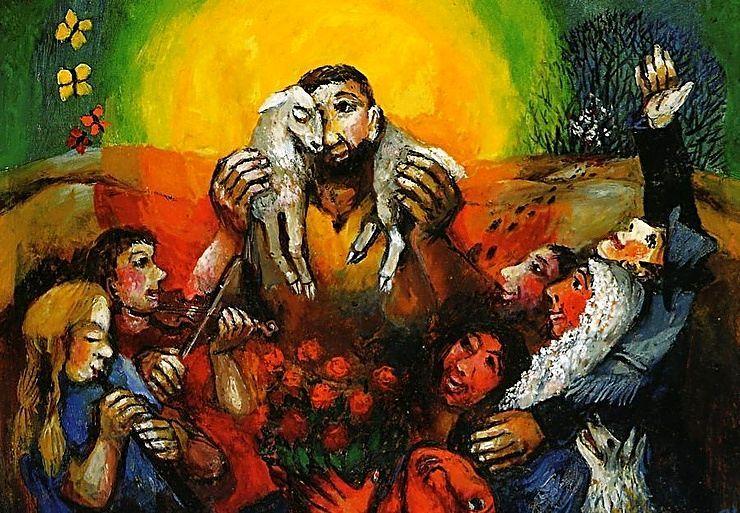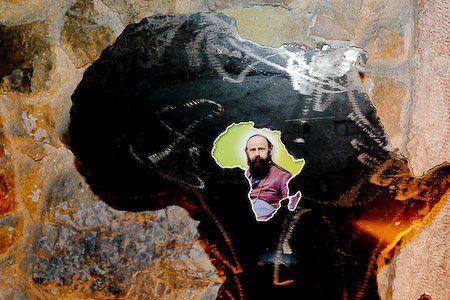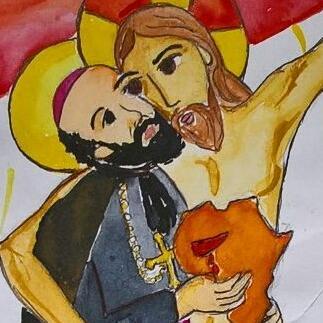Daniel Comboni
Comboni Missionaries
Institutional area
Other links
Newsletter
The Chapter tells us that change will take place only if each Comboni Missionary becomes aware of the gift he has received, explores the deeper meaning and assimilates it, day in and day out, shaping his identity in the footsteps of the Founder. Only in this way we will have the “courage” to face the challenges that Mission presents to us and the “creativity” to face them with the passion Comboni had in his heart (CA ’03, 36-38).
A time of change
Since the days when Vatican II spoke of the need for renewal, all the General Chapters held by the Comboni Institute (seven from 1969 up to now, to be exact) have insisted on this topic and have urged confreres and communities to walk in the direction of change.
The fact is that very often change has been understood as mere reshuffling, often connected to personnel, rotation and mission strategies, rather than aiming at personal renewal and of the way we see, feel and act.
We must agree that over the last several years the Institute has been very alert and has invested time and means to promote the aggiornamento of individuals. Initiatives both at the provincial and at the general level have been many. Fruits, however, are slow in coming, at least in the quality and quantity we hoped for.
Why? Because, all to often, when we speak of change we think above all of structural changes, of changes in others, even of some superiors. We rarely think of the change we need to bring about within ourselves.
We devise formulas for changing others, but we never apply them to ourselves.
The 16th General Chapter, aware of this situation and in line with what has been done over the last several years, has again insisted on the necessity of renewal and it has even indicated the road to be taken: “The occasion of Comboni’s canonization incites us to a deeper discovery of the gift that has been given us. It makes us able to take on, courageously and creatively, the challenges of a renewed mission for the coming of the Kingdom in the world of today” (CA ’03, 32).
In other words, the Chapter tells us that change will take place only if each Comboni Missionary becomes aware of the gift he has received, explores the deeper meaning and assimilates it, day in and day out, shaping his identity in the footsteps of the Founder. Only in this way we will have the “courage” to face the challenges that Mission presents to us and the “creativity” to face them with the passion Comboni had in his heart (CA ’03, 36-38).
On the one side, we are asked to be faithful to our charism, and on the other we are asked the be able to read the signs of the times and to be ready to give timely and prophetic answers. Faithfulness to the charism, however, without the ability to answer the challenges of today, runs the risk of turning us into museum pieces, uncertain and fearful of any minor change. But the push to face today’s challenges, without any tie to our charismatic roots, runs the risk to make us, in our activities, similar to the grass of the field which is cut in the evening and dries up (See Sirach 90,5-6).
A time of regeneration
In his inspired Plan for Africa, St. Daniel Comboni proposed a methodology of regeneration (S 1425). In order to save Africa, we must count on the cooperation, the involvement and the protagonism of the Africans themselves. We know that for Comboni, unlike perhaps some Comboni Missionaries, the cry “Save Africa with Africa” was never an empty slogan or a distant ideal. From the very beginning, Comboni tried to form African coworkers, such as for instance the African women teachers, Fr. Daniel Sorur, Sr. Fortunata Quascé, the first African Comboni Missionary Sister.
This methodological intuition of regeneration, which was and still is undeniably the motivation for our choices, is not to be applied only to the recipients of our missionary service, but can be applied also to the Comboni Missionaries themselves, for the renewal of the Institute.
The glorification of St. Daniel Comboni is an appeal that leads us in that direction and helps us to read the reality of today in our Institute through new lenses (CA ’03, 17-23). We must no longer expect ingenious solutions or irresistible theories of charismatic individuals, bolts of lightning, “free lancers” or Comboni Missionaries who are above every rule… but must aim at the involvement of all: the sick and the elderly, the newer recruits coming from various continents; from the confreres who are involved as “hidden stones” (CA ’03, 16) to those who are fatigued, disenchanted or living in peculiar situations… from those who are involved in evangelization to those who are in formation and in mission promotion… from those who work in mass-media to those involved in administration.
How will we regenerate ourselves? The Chapter uses some terms that point the way:
It is time to review… identify… re-qualify… renew… deepen…
(CA ’03, 30, 1-5)
In community council meetings, especially in preparation for the community project, we must face together the challenges the Chapter has given us for a methodology of regeneration.
Re-qualification of commitments
The regeneration of individuals for a more qualified missionary service must lead us to a well articulated planning of the re-qualification of our commitments. It is not possible to continue to keep up a frenetic pace in our activities, or cultivate pretenses of expansion, dreaming of being able to reach everything and everyone.
The 16th General Chapter has reminded us that we must look at the quality of our service to the people, more than at the number of activities and initiatives. The crux of the matter, therefore, does not consist in having more personnel, but in having missionary personnel that has been regenerated in view of a better qualified service. The criteria that will guide us in choosing our commitments are moving in this direction (CA ’03, 44, 1-4) and one of the priorities is the intention of the General Administration “to discuss with each province a sound plan of re-qualification of commitments” (CA ’03, 133.1).
We are all involved in this task: the superiors - together with the various advisors and secretariats - with the ability to discern and seek the true good of the persons; each missionary with his opening to the spirit, his involvement in dialogue and his availability to obey.
The role of the poor
We have repeated it so often that even the people of our ecclesial communities know that the Comboni Missionaries were born to serve the “poorest and most abandoned.” And if we look at the practice of our missionary activity we see that the poorest and most abandoned continue to be the recipients of our missionary service…
How? Here personal initiatives are too many to count. Let us be frank, we do not have a common methodology and in our communities we find a bit of everything: some live for the poor and gathers anything and everything to lessen their sufferings; others live among the poor, but with a lifestyle that’s not very poor; others live with the poor in their hearts… only; others live as poor among the poor… and they are not few.
One thing is certain, however, and it is that when the Comboni Missionaries distance themselves from the poorest and most abandoned, then their charism loses luster and taste. If we are far away and indifferent to the plight of the poor, we lose the missionary bounce and flavor. We lose our identity.
The mediocrity, the decadence that we find at times in some communities, the loss of identity, the lack o motivation... come from the fact that the poor are no longer the main concern. We have put them on display, filled our houses with posters portraying the reality in the various continents, but for the poor in flesh and blood chances of getting inside are rather slim.
For a true change, we the Chapter invite us to “determine which situations of poverty and neglect call on us today, and thus re-qualify our commitments” (CA ’03, 38) starting from Africa which remains even today our top venue o evangelization, but also in other continents, Europe included (CA ’03, 43, 1-4).
The Word of God
In our community meetings we may want to allow ourselves to be challenged by these passages from the Word of God:
• The conversation of Nicodemus and Jesus: John 3,1-21
• The conversion of Paul: Gal. 1,11-24
• You are the salt of the earth, the light of the world: Mt 5,13-16
• The poor Lazarus at the gate: Lk 16, 19-31
Questions for reflection
• What are the criteria proposed by the Chapter for a rethinking and revision of our commitments? (See CA ’03, 44.1-4)
• What are the necessary conditions for personal renewal?
• What is your community’s specific role in missionary service in your area?
• How are the poor to become part of our lives, our community and our task as evangelizers?
By the General Secretariats
Since the days when Vatican II spoke of the need for renewal, all the General Chapters held by the Comboni Institute (seven from 1969 up to now, to be exact) have insisted on this topic and have urged confreres and communities to walk in the direction of change.
The fact is that very often change has been understood as mere reshuffling, often connected to personnel, rotation and mission strategies, rather than aiming at personal renewal and of the way we see, feel and act.
We must agree that over the last several years the Institute has been very alert and has invested time and means to promote the aggiornamento of individuals. Initiatives both at the provincial and at the general level have been many. Fruits, however, are slow in coming, at least in the quality and quantity we hoped for.
Why? Because, all to often, when we speak of change we think above all of structural changes, of changes in others, even of some superiors. We rarely think of the change we need to bring about within ourselves.
We devise formulas for changing others, but we never apply them to ourselves.
The 16th General Chapter, aware of this situation and in line with what has been done over the last several years, has again insisted on the necessity of renewal and it has even indicated the road to be taken: “The occasion of Comboni’s canonization incites us to a deeper discovery of the gift that has been given us. It makes us able to take on, courageously and creatively, the challenges of a renewed mission for the coming of the Kingdom in the world of today” (CA ’03, 32).
In other words, the Chapter tells us that change will take place only if each Comboni Missionary becomes aware of the gift he has received, explores the deeper meaning and assimilates it, day in and day out, shaping his identity in the footsteps of the Founder. Only in this way we will have the “courage” to face the challenges that Mission presents to us and the “creativity” to face them with the passion Comboni had in his heart (CA ’03, 36-38).
On the one side, we are asked to be faithful to our charism, and on the other we are asked the be able to read the signs of the times and to be ready to give timely and prophetic answers. Faithfulness to the charism, however, without the ability to answer the challenges of today, runs the risk of turning us into museum pieces, uncertain and fearful of any minor change. But the push to face today’s challenges, without any tie to our charismatic roots, runs the risk to make us, in our activities, similar to the grass of the field which is cut in the evening and dries up (See Sirach 90,5-6).
A time of regeneration
In his inspired Plan for Africa, St. Daniel Comboni proposed a methodology of regeneration (S 1425). In order to save Africa, we must count on the cooperation, the involvement and the protagonism of the Africans themselves. We know that for Comboni, unlike perhaps some Comboni Missionaries, the cry “Save Africa with Africa” was never an empty slogan or a distant ideal. From the very beginning, Comboni tried to form African coworkers, such as for instance the African women teachers, Fr. Daniel Sorur, Sr. Fortunata Quascé, the first African Comboni Missionary Sister.
This methodological intuition of regeneration, which was and still is undeniably the motivation for our choices, is not to be applied only to the recipients of our missionary service, but can be applied also to the Comboni Missionaries themselves, for the renewal of the Institute.
The glorification of St. Daniel Comboni is an appeal that leads us in that direction and helps us to read the reality of today in our Institute through new lenses (CA ’03, 17-23). We must no longer expect ingenious solutions or irresistible theories of charismatic individuals, bolts of lightning, “free lancers” or Comboni Missionaries who are above every rule… but must aim at the involvement of all: the sick and the elderly, the newer recruits coming from various continents; from the confreres who are involved as “hidden stones” (CA ’03, 16) to those who are fatigued, disenchanted or living in peculiar situations… from those who are involved in evangelization to those who are in formation and in mission promotion… from those who work in mass-media to those involved in administration.
How will we regenerate ourselves? The Chapter uses some terms that point the way:
It is time to review… identify… re-qualify… renew… deepen…
(CA ’03, 30, 1-5)
In community council meetings, especially in preparation for the community project, we must face together the challenges the Chapter has given us for a methodology of regeneration.
Re-qualification of commitments
The regeneration of individuals for a more qualified missionary service must lead us to a well articulated planning of the re-qualification of our commitments. It is not possible to continue to keep up a frenetic pace in our activities, or cultivate pretenses of expansion, dreaming of being able to reach everything and everyone.
The 16th General Chapter has reminded us that we must look at the quality of our service to the people, more than at the number of activities and initiatives. The crux of the matter, therefore, does not consist in having more personnel, but in having missionary personnel that has been regenerated in view of a better qualified service. The criteria that will guide us in choosing our commitments are moving in this direction (CA ’03, 44, 1-4) and one of the priorities is the intention of the General Administration “to discuss with each province a sound plan of re-qualification of commitments” (CA ’03, 133.1).
We are all involved in this task: the superiors - together with the various advisors and secretariats - with the ability to discern and seek the true good of the persons; each missionary with his opening to the spirit, his involvement in dialogue and his availability to obey.
The role of the poor
We have repeated it so often that even the people of our ecclesial communities know that the Comboni Missionaries were born to serve the “poorest and most abandoned.” And if we look at the practice of our missionary activity we see that the poorest and most abandoned continue to be the recipients of our missionary service…
How? Here personal initiatives are too many to count. Let us be frank, we do not have a common methodology and in our communities we find a bit of everything: some live for the poor and gathers anything and everything to lessen their sufferings; others live among the poor, but with a lifestyle that’s not very poor; others live with the poor in their hearts… only; others live as poor among the poor… and they are not few.
One thing is certain, however, and it is that when the Comboni Missionaries distance themselves from the poorest and most abandoned, then their charism loses luster and taste. If we are far away and indifferent to the plight of the poor, we lose the missionary bounce and flavor. We lose our identity.
The mediocrity, the decadence that we find at times in some communities, the loss of identity, the lack o motivation... come from the fact that the poor are no longer the main concern. We have put them on display, filled our houses with posters portraying the reality in the various continents, but for the poor in flesh and blood chances of getting inside are rather slim.
For a true change, we the Chapter invite us to “determine which situations of poverty and neglect call on us today, and thus re-qualify our commitments” (CA ’03, 38) starting from Africa which remains even today our top venue o evangelization, but also in other continents, Europe included (CA ’03, 43, 1-4).
The Word of God
In our community meetings we may want to allow ourselves to be challenged by these passages from the Word of God:
• The conversation of Nicodemus and Jesus: John 3,1-21
• The conversion of Paul: Gal. 1,11-24
• You are the salt of the earth, the light of the world: Mt 5,13-16
• The poor Lazarus at the gate: Lk 16, 19-31
Questions for reflection
• What are the criteria proposed by the Chapter for a rethinking and revision of our commitments? (See CA ’03, 44.1-4)
• What are the necessary conditions for personal renewal?
• What is your community’s specific role in missionary service in your area?
• How are the poor to become part of our lives, our community and our task as evangelizers?
By the General Secretariats




